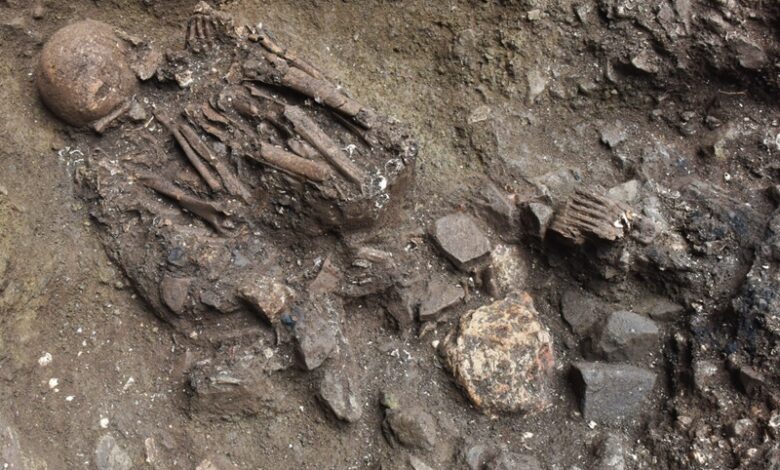7,100-Year-Old Skeleton Reveals Unknown Human Lineage in China
News Mania Desk / Piyal Chatterjee / 31st May 2025

A recent investigation of a 7,100-year-old skeleton from China has uncovered a “ghost” lineage previously existing only in hypotheses. The skeleton of an early Neolithic female, referred to as Xingyi_EN, was discovered at the Xingyi archaeological location in Yunnan province, southwestern China. Her DNA connects her to a markedly distinct human group that might have played a role in the ancestry of contemporary Tibetans.
This research also uncovers a unique Central Yunnan lineage linked to early groups that spoke Austroasiatic languages. This finding positions Yunnan as a crucial area for comprehending the ancient genetic heritage of East and Southeast Asia. A comprehensive examination of 127 human genomes from southwestern China appears in a study published in the journal Science.
The research shows that radiocarbon dating suggests Xingyi_EN existed approximately 7,100 years ago, and isotope analysis indicates she was a hunter-gatherer. Genetic sequencing uncovered her heritage from a highly distinct human lineage—currently referred to as the Basal Asian Xingyi lineage. This lineage separated from other contemporary human groups more than 40,000 years ago and stayed isolated for millennia without intermingling with other populations.
This “ghost” lineage does not correspond with DNA from Neanderthals or Denisovans but seems to have subsequently influenced the ancestry of certain modern Tibetans. Xingyi_EN serves as the initial physical proof of this previously unidentified group. The majority of the skeletons analyzed by the researchers were dated from 1,400 to 7,150 years ago and originated from Yunnan province, which currently holds the greatest ethnic and linguistic diversity in all of China.






